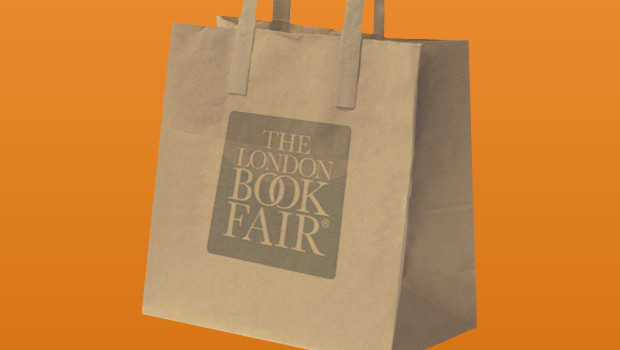Ten takeaways from the London Book Fair
Firsty had a busy few days at the London Book Fair earlier in April. Here are some of our observations from the last event at Earls Court
1 It was a buzzy fair
It’s often hard to tell if one London Book Fair is any busier or quieter than the last one, or the one before that. But there was a definite hum around Earls Court this year, and the aisles appeared pretty busy from start to finish. The Bookseller’s round-up of opinions seemed to echo that view. “LBF has been really buzzing this year, more than in the past few years,” said Orion General managing director Lisa Milton.
2 Publishing is in a good place
There has been a lot of doom and gloom about publishing lately, mostly revolving around its ability to adapt to digital change and challenges. But from the mood at Earls Court, you wouldn’t have guessed there was much the matter. UK publishers were generally upbeat, and confident that the much-publicised decline in print sales is being made up for by growing digital revenues. Visitors from overseas seemed pretty chipper too, after several tough years in many publishing territories around the world.
3 There’s a lot of smart thinking going on
At seminars and on stands, there was plenty of debate about where the opportunities and threats will lie in the months and years ahead. One of the best sessions was the Digital Minds conference, where speakers explored the possibilities that digital technology opens up. Tech commentator Bill Thompson summed it up pretty well when he said: “Publishing is about bridging cultural capital. If we break from the idea that it is all about books, it doesn’t mean that books don’t matter—it means that other things become possible.”
4 Digital is everywhere…
Digital suppliers and services become a more important part of the fair by the year, and they were out in force this year. There was lots of chatter about e-books, apps, websites and much more, and what was striking was that many publishers now seem very comfortable and confident with all the new technology. Digital might have lost some of its scariness. As Penguin Random House chief executive Tom Weldon argued in an interview with the Observer on the eve of the fair, the industry has been managing this transition to digital very well. “Some say publishing is in trouble. They are completely wrong.”
5 …But print is still crucial too
There is an argument that it is only a matter of time before readers switch completely to e-reading. But even a quick scout round the fair was enough to show there is plenty of life in print yet. It might seem like stating the obvious at a book fair, but books were everywhere, and still far more prevalent than tablets or Kindles. It was a reminder that the future is going to be a real blend of print and digital reading, and of the need for publishers to do both brilliantly.
6 We need more innovation
There was a lot of talk about the need for publishers to keep reinventing the way they publish and distribute content. Author Nick Harkaway said at the fair’s Digital Minds conference that publishers still weren’t being creative enough in their thinking, and Publishers Association chief executive Richard Mollet said they needed to keep people interested. “If you stand still, you are probably in danger because someone will come along and take your consumers from you.” Just turning a book into a PDF isn’t enough, he argued.
7 The days of the big fair books are over
Do people really do major deals at fairs any more? London brought a few announcements about six-figure blockbusters, but many of them were probably wrapped up well ahead of the fair, then held back for a big splash at Earls Court. And much more business gets done after the fair has finished, when people are back at their desks and have had some thinking time. That’s not to say that the fair is any less important for publishers and agents—it’s still the vital place for everyone to meet and talk, and there are stacks of rights agreements being made. But it does mean that far fewer blockbuster acquisitions are struck in the heat of the moment now.
8 Open access is part of the mainstream
On the academic side of the fair, the talk was about the thorny issue of open access. Does it represent the future of publishing here, or is it just one more channel to publish through? Several seminars pondered that big question, but one thing’s for sure: the issue isn’t going away.
9 Independents are flourishing
From Firsty’s viewpoint at one of the corners of the IPG’s collective stand, where space was shared by about 80 publishers, independents seemed in good spirits—not least at the legendary IPG book fair party on the second evening. And at LBF’s Great Debate, Faber chief executive Stephen Page argued that indies have a lot of advantages over conglomerates. “The transformation of the digital publishing market means that size doesn’t matter any more… bigger brings with it a good chequebook, but smaller offers more opportunities,” he said.
10 People are looking forward to Olympia
What difference will taking the book fair to nearby Olympia next year make? Not a lot, according to most of the people we spoke to. Both Earls Court and Olympia seem to be loved and loathed in equal measure, and the layout and most stands will be just about identical next year. There might be a bit of sentimentality about leaving Earls Court for the last time, but that is balanced by the fact that Olympia has just been through a £30m redevelopment that has left it a lot better than when the fair was last there. And it has the distinct advantage of a glass room that actually lets some daylight in. We just have to remember to get the Tube or taxi to the right place in 2015.





